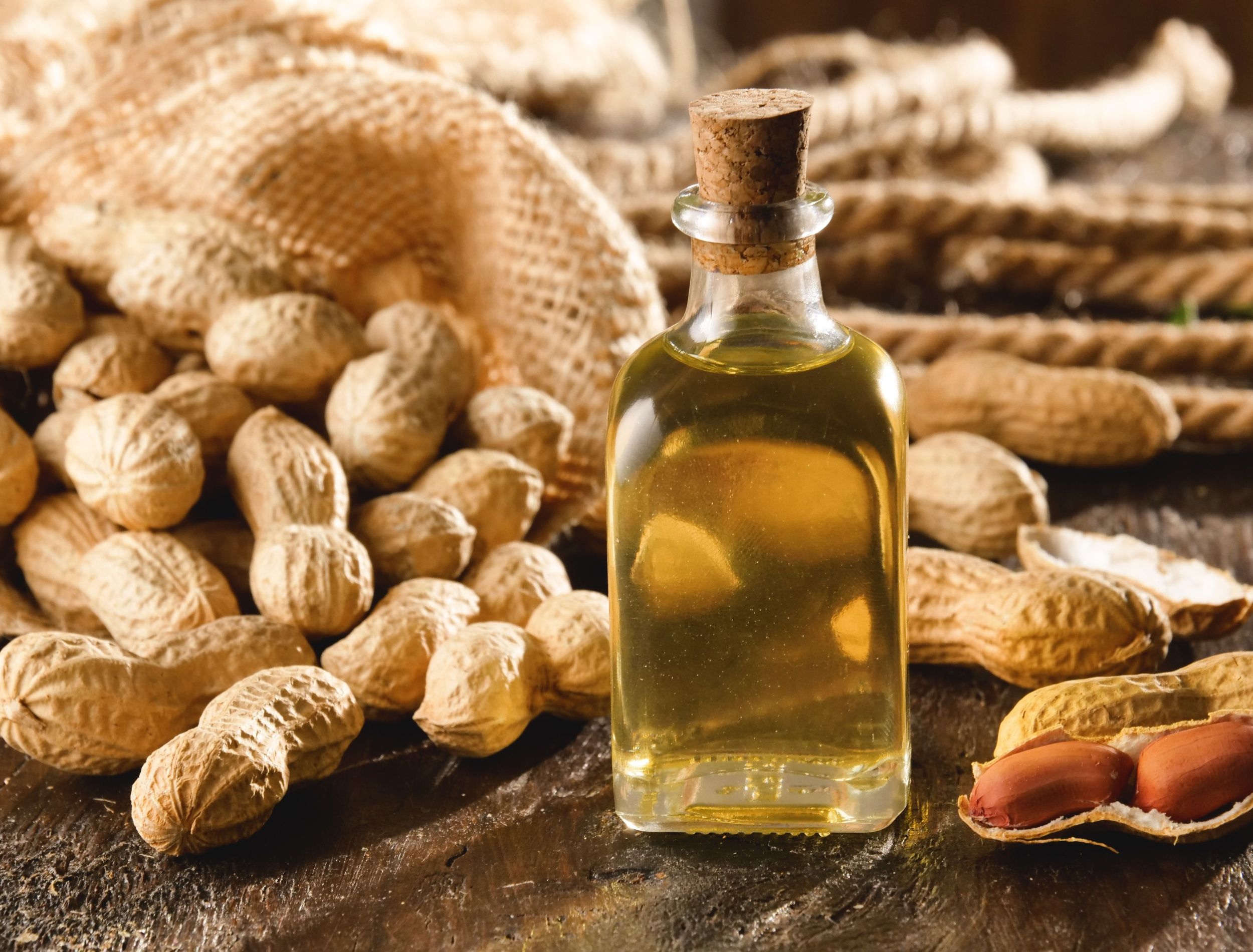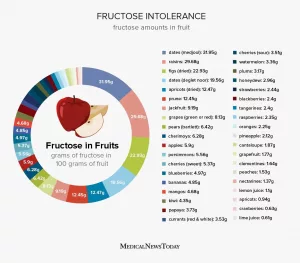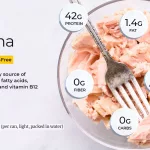Peanut oil is rich in vitamin E but also contains high levels of omega-6 fats. Read on to learn its advantages, disadvantages, and how to use it safely.
With so many cooking oils available, it can be difficult to determine which ones are healthiest for regular use.
Peanut oil is a commonly used cooking oil, especially favored for frying.
Although peanut oil offers some potential health perks, it also presents notable downsides.
This article examines peanut oil to help you decide whether it’s a good or poor choice for your diet.
What is peanut oil?
Peanut oil, also called groundnut oil or arachis oil, is a plant-based oil extracted from the edible seeds of the peanut plant.
Despite the plant’s flowers emerging above the soil, the seeds — peanuts — develop below ground, which is why they’re sometimes referred to as groundnuts.
Peanuts are often mistaken for tree nuts like walnuts or almonds, but they’re actually legumes and are part of the pea and bean family.
Depending on how it’s processed, peanut oil can vary in flavor from mild and slightly sweet to robust and nutty.
Several varieties of peanut oil exist, each produced through different methods:
- Refined peanut oil: This oil is refined, bleached, and deodorized, which removes most allergenic proteins. It’s generally safe for many people with peanut allergies and is a common choice for frying foods such as chicken and french fries.
- Cold-pressed peanut oil: In this approach, peanuts are mechanically pressed to release the oil. This lower-temperature technique preserves more of the natural peanut flavor and nutrients compared with heavy refining.
- Gourmet peanut oil: A specialty, unrefined option that’s often made from roasted peanuts, resulting in a richer, more pronounced flavor used in dishes that benefit from a strong nutty note, like stir-fries.
- Peanut oil blends: Peanut oil is sometimes mixed with a similar-tasting but cheaper oil, such as soybean oil. These blends are less expensive and frequently sold in bulk for frying.
Peanut oil is used widely worldwide, particularly in Chinese, South Asian, and Southeast Asian cuisines. Its popularity in the United States increased during World War II when other cooking fats were scarce.
It has a high smoke point of 437°F (225°C), making it a common choice for frying.

Nutrient composition
Here is the nutritional profile for 1 tablespoon (13.5 g) of peanut oil:
- Calories: 119
- Fat: 13.5 grams
- Saturated fat: 2.3 grams
- Monounsaturated fat: 6.2 grams
- Polyunsaturated fat: 4.3 grams
- Vitamin E: 14% of the daily value
The fatty acid profile of peanut oil is about 20% saturated fat, 50% monounsaturated fat (MUFA), and 30% polyunsaturated fat (PUFA).
The predominant monounsaturated fat is oleic acid (omega-9). It also contains substantial linoleic acid, an omega-6 fatty acid, and smaller amounts of palmitic acid, a saturated fat.
Peanut oil’s high omega-6 content may be problematic, as these fats can promote inflammation and have been associated with various health concerns.
The oil’s considerable monounsaturated fat content makes it suitable for frying and other high-temperature cooking methods. However, its appreciable polyunsaturated fat content is less stable under heat.
On the positive side, peanut oil is a solid source of vitamin E, an antioxidant that helps protect against free radical damage and may lower heart disease risk.
Potential benefits of peanut oil
Peanut oil supplies a notable amount of vitamin E.
It has also been associated with several health benefits, such as improving some heart disease risk markers and helping control blood sugar in people with diabetes.
Peanut oil is high in vitamin E
One tablespoon of peanut oil provides about 14% of the recommended daily value for vitamin E.
Vitamin E refers to a group of fat-soluble compounds that serve several vital roles in the body.
The primary job of vitamin E is acting as an antioxidant, helping neutralize harmful molecules called free radicals.
When free radicals accumulate, they can damage cells and have been linked to chronic conditions such as cancer and heart disease.
A number of studies have found that vitamin E can reduce fasting blood glucose and improve HgbA1c and insulin sensitivity in people with diabetes.
Vitamin E also supports immune function, aids in red blood cell production, assists cell signaling, and helps prevent abnormal clotting.
This antioxidant may lower the risk of heart disease and certain cancers and could help slow cognitive decline related to aging.
Although vitamin E has been promoted for cataract prevention, a 2021 review found the evidence inconclusive; more research is necessary to determine any protective effect against cataracts.
It may reduce heart disease risk
Peanut oil contains both monounsaturated (MUFA) and polyunsaturated (PUFA) fats, which have been widely studied for their potential to lower heart disease risk.
There’s substantial evidence that consuming unsaturated fats can improve some cardiovascular risk factors.
Elevated LDL cholesterol and triglycerides are linked with increased heart disease risk. Multiplestudies indicate that replacing saturated fats with MUFAs or PUFAs can reduce LDL cholesterol and triglyceride levels.
A 2017 statement from the American Heart Association suggests that cutting saturated fats and replacing them with monounsaturated and polyunsaturated fats could lower heart disease risk by up to 30%.
Another review of 21 meta-analyses concluded that reducing saturated fat intake may decrease heart disease risk but did not affect overall mortality.
Some research compared lower saturated fat intake against higher intake, while other studies compared saturated fats to unsaturated fats. Further research is necessary to fully clarify saturated fat’s role in cardiovascular health.
Although peanut oil provides some polyunsaturated fats, other nutritious foods are richer sources of these fats, such as walnuts, sunflower seeds, and flaxseeds.
Peanut oil may improve insulin sensitivity
Research suggests that monounsaturated and polyunsaturated fats can help improve blood sugar control in people with diabetes.
Eating fat together with carbohydrates slows sugar absorption in the gut, resulting in a more gradual rise in blood glucose. Monounsaturated and polyunsaturated fats, in particular, may play a larger role in blood sugar regulation.
A 2023 cross-sectional study of over 7,500 adults found that a higher intake of polyunsaturated and monounsaturated fats was associated with a reduced risk of insulin resistance and lower blood sugar levels.
Moreover, replacing saturated fats and refined carbohydrates with polyunsaturated fats significantly enhanced insulin secretion in participants. Insulin helps cells take up glucose and prevents excessive blood sugar increases.
Potential health risks
While peanut oil has documented benefits, it also carries potential risks.
Peanut oil is high in omega-6 fats
Omega-6 fatty acids are a form of polyunsaturated fat and are essential nutrients that must be obtained from the diet.
Alongside omega-3s, omega-6 fats are important for growth, development, and normal brain function.
Omega-3s tend to reduce inflammation, whereas omega-6s are more likely to promote inflammatory processes.
Although both are necessary, modern diets often include excessive omega-6 intake. The typical American diet may contain 14 to 25 times more omega-6s than omega-3s.
Experts recommend a ratio closer to 1:1 up to 4:1 for optimal health. As omega-6 consumption has risen in recent decades, rates of inflammatory conditions like heart disease, obesity, inflammatory bowel disease, and certain cancers have also increased.
Peanut oil is especially high in omega-6s and contains virtually no omega-3s. To achieve a healthier balance of these essential fats, consider limiting oils that are heavy in omega-6s, including peanut oil.
Peanut oil may be prone to oxidation
Oxidation is a chemical reaction with oxygen that generates free radicals and other harmful compounds. Unsaturated fats are more vulnerable to oxidation, while saturated fats are relatively resistant.
Polyunsaturated fats are particularly susceptible to oxidative damage because they contain more unstable double bonds.
Exposure to heat, air, light, or moisture can trigger this unwanted process.
Because peanut oil contains a notable amount of polyunsaturated fats and is often used at high cooking temperatures, it’s more susceptible to oxidizing.
Free radicals formed when peanut oil oxidizes can harm the body. This damage has been linked to premature aging, some cancers, and cardiovascular disease.
Other oils that are more stable for high-heat cooking include avocado oil, safflower oil, and sesame oil.
These alternatives resist oxidation better than peanut oil. Although peanut oil is promoted for its high smoke point, it may not be the optimal choice for all high-heat applications.
The bottom line
Peanut oil is a widely used cooking oil worldwide.
It provides vitamin E, an antioxidant that may help lower some heart disease risk factors and could improve insulin sensitivity and blood sugar control in people with diabetes.
However, peanut oil also has downsides.
It’s very high in pro-inflammatory omega-6 fatty acids and is prone to oxidation, which may contribute to disease risk.
Given the variety of healthier fat options available, you might choose an oil with more benefits and fewer potential harms.
Healthier alternatives include sesame oil, safflower oil, and avocado oil.

























Leave a Reply
You must be logged in to post a comment.